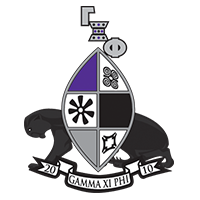Brother Rashid Darden, novelist and National President of Gamma Xi Phi, reflects on the role of craftsmen and craftswomen on the occasion of National Black Business Month 2015.
The late 1980s and early 1990s were not easy on my family. It’s not a period of my life that I often discuss, nor are there very many photographs that I possess from that era. Times were hard and we didn’t have much.
From our rooming house in the Columbia Heights section of the District of Columbia, my mother worked hard to make ends meet. She was a creator. She made lotions and hand creams for family and friends who wanted an affordable alternative for their Sunday morning “smell-good.” She was a seamstress who sewed blouses and lap scarves and even entire suits for women. Additionally, in those days, she was a jewelry-maker. She specialized in beaded earrings and necklaces.
I remember the day that she made her display cases. She took pieces of corkboard and covered them with black velour fabric. The end result looked like a classy science fair board. After the display was able to stand on its own, she place pushpins on the front and hung the earrings from them. Since she only made earrings for pierced earrings it was easy to just hang the earrings from the pushpins. After we did that, we placed the whole display in large plastic bags and departed for various events.
We’d go to various fairs and bazaars at local schools and libraries and peddle my mom’s work. Some days, I would just sit and read quietly while she worked. Other times, I would go and enjoy the rest of the event. My favorite was the Spring Fair at Lafayette Elementary School, an event still going on to this day.
From time to time, people would see my mom’s work and complain about the prices, saying “Why is this so much? Somebody made these!” Her response was always “Don’t you think somebody made the jewelry in the store, too?” The naysayers never had a comeback for that one.
From what I recall, she usually sold very well—and that’s what we needed. It wasn’t just income that kept my family going through our darkest hours, but a sense of purpose and a sense of creativity. My mom made things that people needed and things that people wanted. They saw the things that she made with her hands and they wanted to own them. My mom got a great sense of accomplishment and pride from knowing that the things she made always garnered compliments on their originality and craftsmanship.
With the income and pride that my mom earned, we were able to move from the rooming house into an apartment, where we stayed until I graduated from high school and went on to college. My mother eventually secured a job at the National Institutes of Health, from which she retired. She never stopped making jewelry or sewing and she still takes special orders when it doesn’t interfere with her agenda as a happy retiree.
My own career as a novelist would not have been possible without my mother’s example. As an independently published writer, I already knew that it would be necessary to explore literary fairs and the Pride circuit to connect directly with potential readers. When many bookstores would not carry self-published novelists, these opportunities for direct sales were essential to my success.
The work of craftswomen and craftsmen is lifesaving. Without the determination of my mother to monetize her artistry, we would have been far worse off as a family. But of course, where would we be without the customers? Hundreds of people over the years purchased my mother’s jewelry and referred her to their friends. People who were once just neighbors became regular shoppers. Church ladies needed my mother whenever the choir changed up the uniform. And even the church men came to my mother for their handkerchiefs and pocket squares.
People who decide to make beautiful things with their hands deserve our business. Artisans are not only selling to the local community, but they often are the ones supporting the smaller events and local fairs and festivals. Can the same be said of large department stores? Probably not. Additionally, supporting local craftspeople ensures diversity in products. Everyone wants a one-of-a-kind piece, whether it’s art for the walls or art that you wear.
So, for Black Business Month 2015, I beseech you all: Take the time to find a craftsman or craftswoman and offer them your support as a new customer. Spend your dollars in your own community and contribute to the local artistic economy.
And to the artists working hard, I ask that you keep your head up, be patient, and continue to stay the course. Your hard work will pay off and we salute you.

